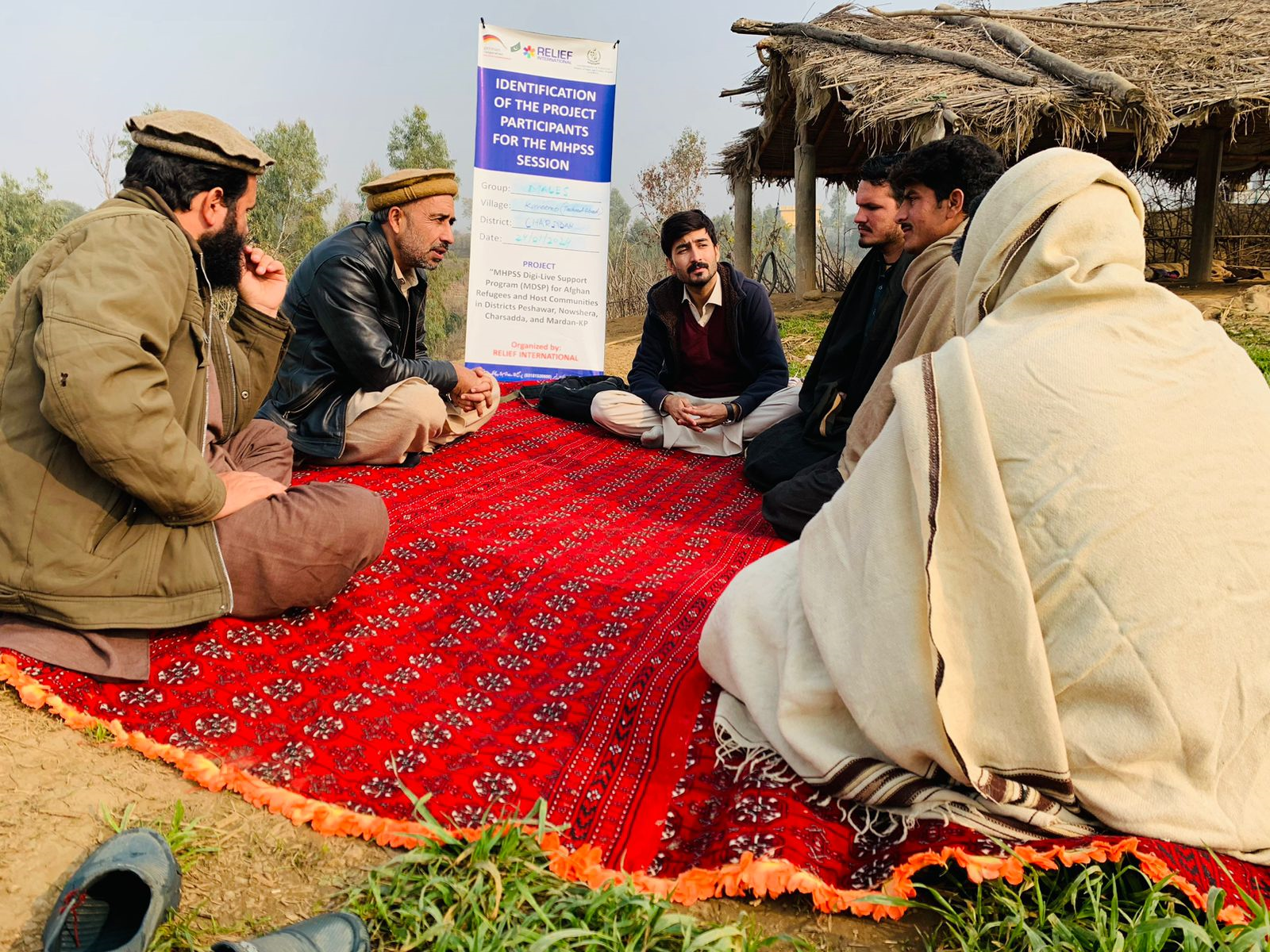Pakistan hosts approximately 3.7 million Afghan refugees, fleeing decade of fragile security situation. It is estimated that in 2021 only, around 600,000 Afghans citizens were seeking refuge in Pakistan after the regime change. Among them, 31% live in camps, and more than half of them are considered to be extremely poor. Indeed, Pakistan provides public access to basic needs for Afghan refugees, but unequal treatments persist.
Relief International (RI) is present in Pakistan since 2005, and supports all communities, regardless of nationality, status, gender, or socioeconomic background, addressing their survival needs through innovative approaches.
In an effort to increase social cohesion, and through the support of the GIZ, RI aims at cultivating greater resilience, self-sufficiency, and psychosocial well-being to support Afghan refugees and host communities across various districts in the Khyber Pakhtunkhwa province of Pakistan. Our initiative spans Peshawar, Nowshera, Charsadda, and Mardan districts, aiming to foster unity and understanding among diverse populations. Through promoting social cohesion, our goal is to pave the way for a dignified and harmonious existence for all individuals involved in these communities. Remaining true to our commitment to building resilience in communities affected by crises, RI is following its unique approach of building resilience in crisis-affected communities and empowering women and young girls through home-based entrepreneurial opportunities. However, the COVID-19 pandemic resulted devastating impact of lost bread-earning sources and reduced market opportunities on the psychological and socio-economic well-being of these communities, exposing women to high risk of domestic abuse. In response, RI restructured its programmatic approach and introduced Mental Health and Psychological Support services to reduce community-based strain and stress.
RI recognizes that the absence of psychosocial support not only impacts mental health but also influences socio-political engagement, workforce participation, future opportunities, social dynamics, and learning behaviors. Therefore, enhancing mental health awareness and implementing appropriate measures can empower project participants to overcome barriers in social, economic, and political spheres, ultimately enabling communities to fulfill their roles in protection, participation, and beyond. As such, RI is delivering MHPSS awareness sessions and counseling services to 4000 individuals, aiming to enhance their well-being and foster peaceful co-existence. The program focuses on developing home-based skills through entrepreneurial training, with the goal of increasing income generation and economic stability, thus contributing to overall well-being. Additionally, RI is leading digital education training courses for the targeted population, equipping them with the skills to actively engage in commercial markets and digitally promote their businesses using a technopreneurship approach. RI is conducting robust mobilization and sensitization efforts within the community to underscore the significance of technology in entrepreneurship and MHPSS, particularly among Afghan youth and women, supporting their self-relience.

